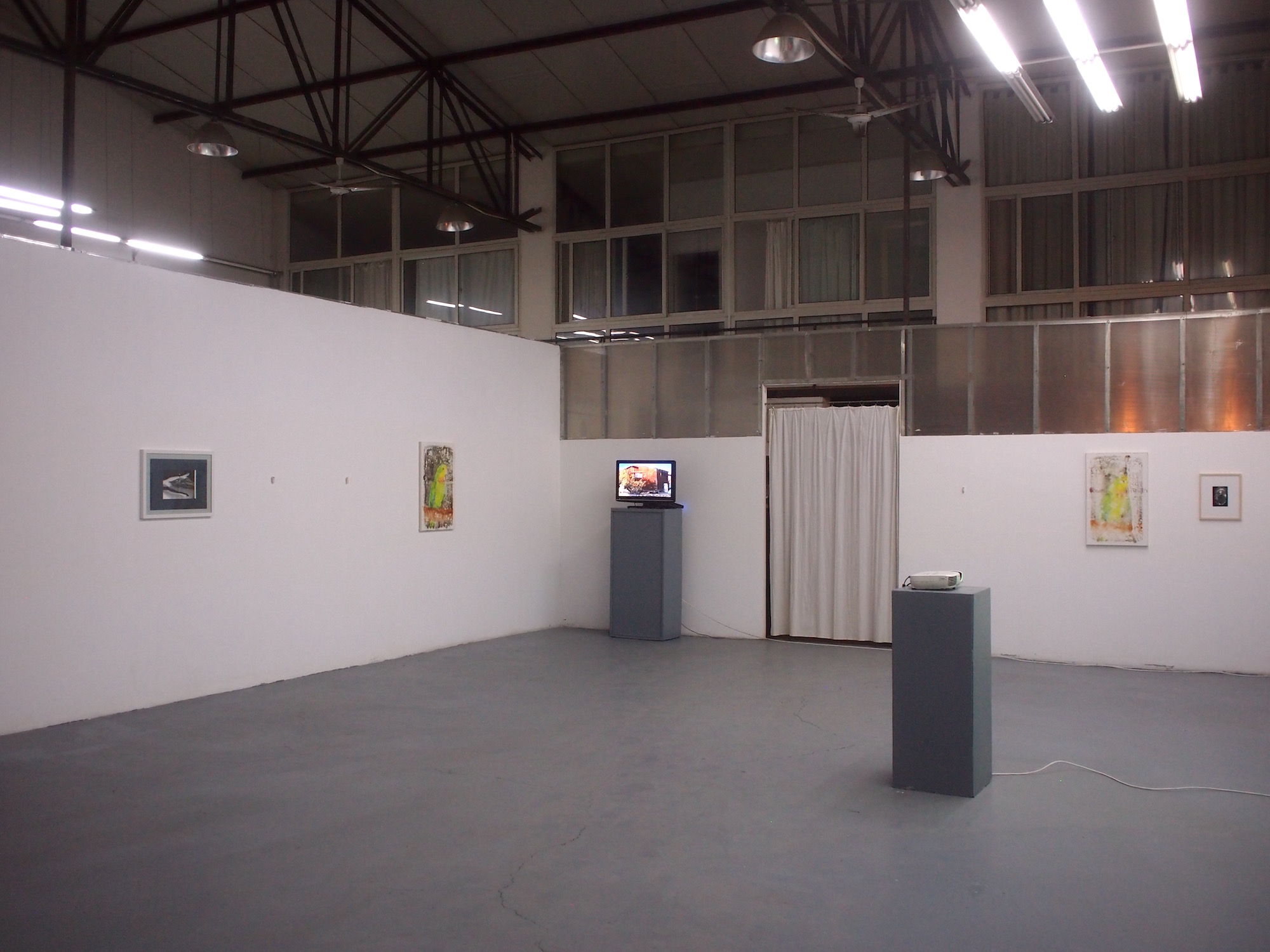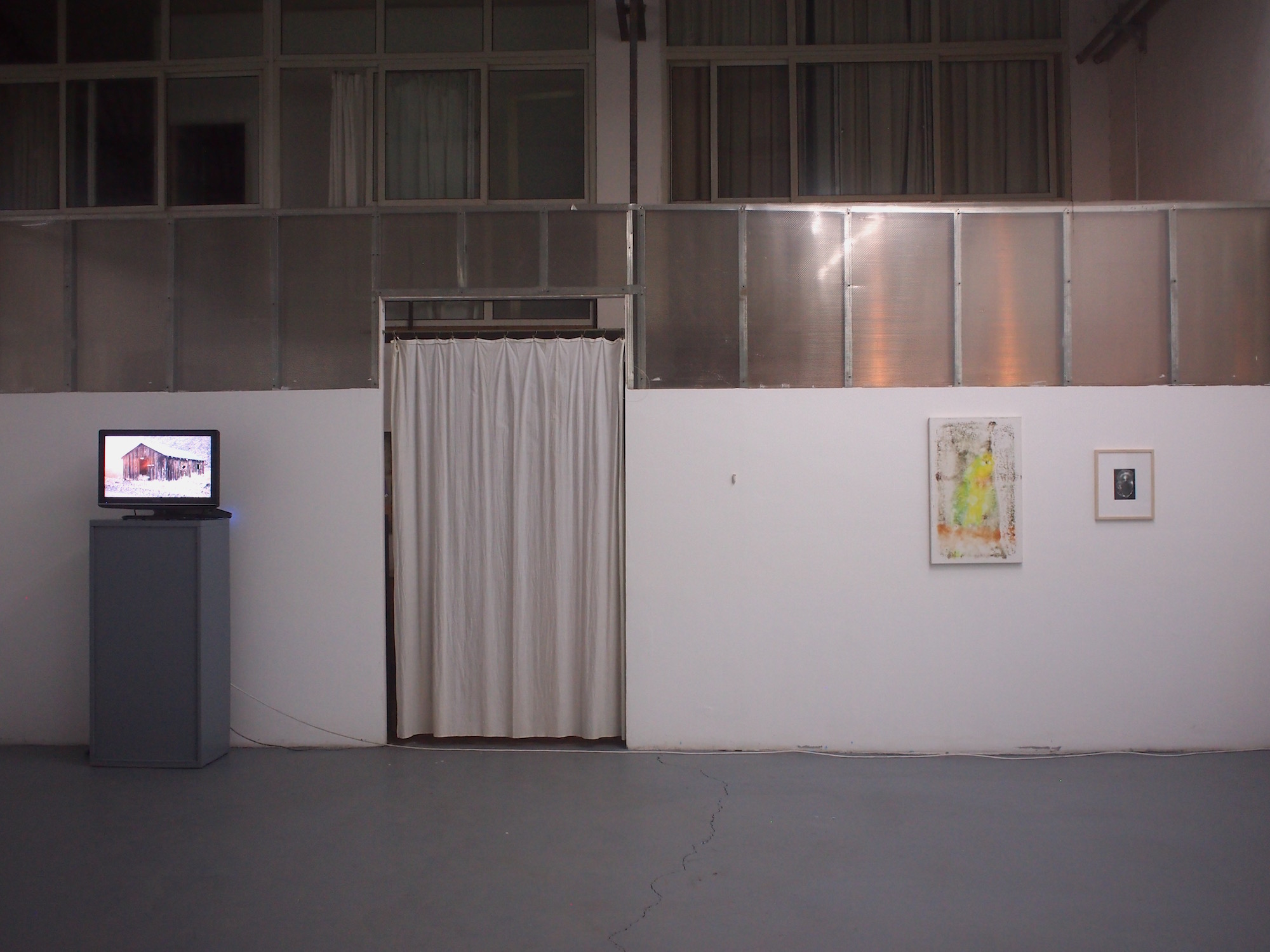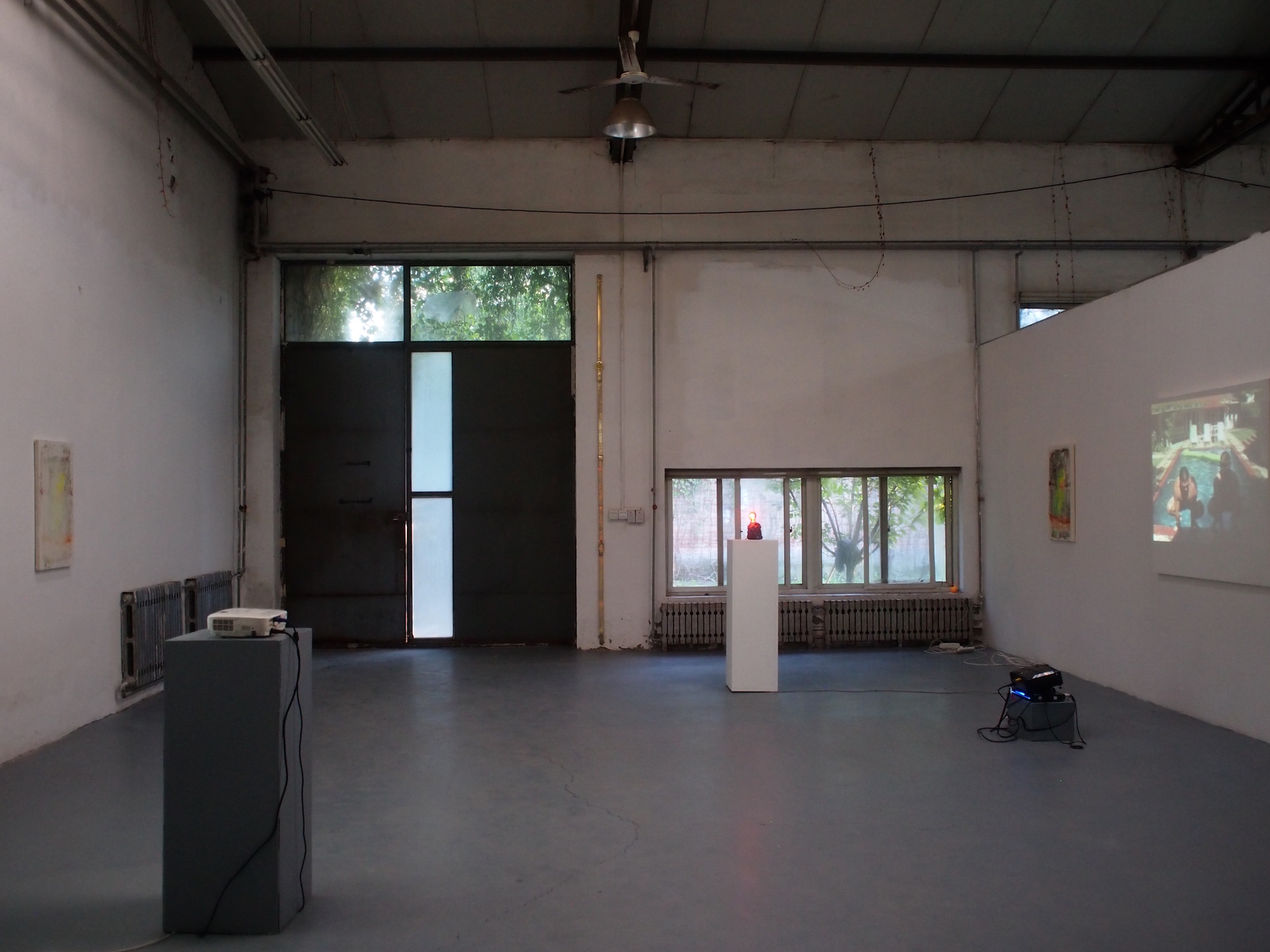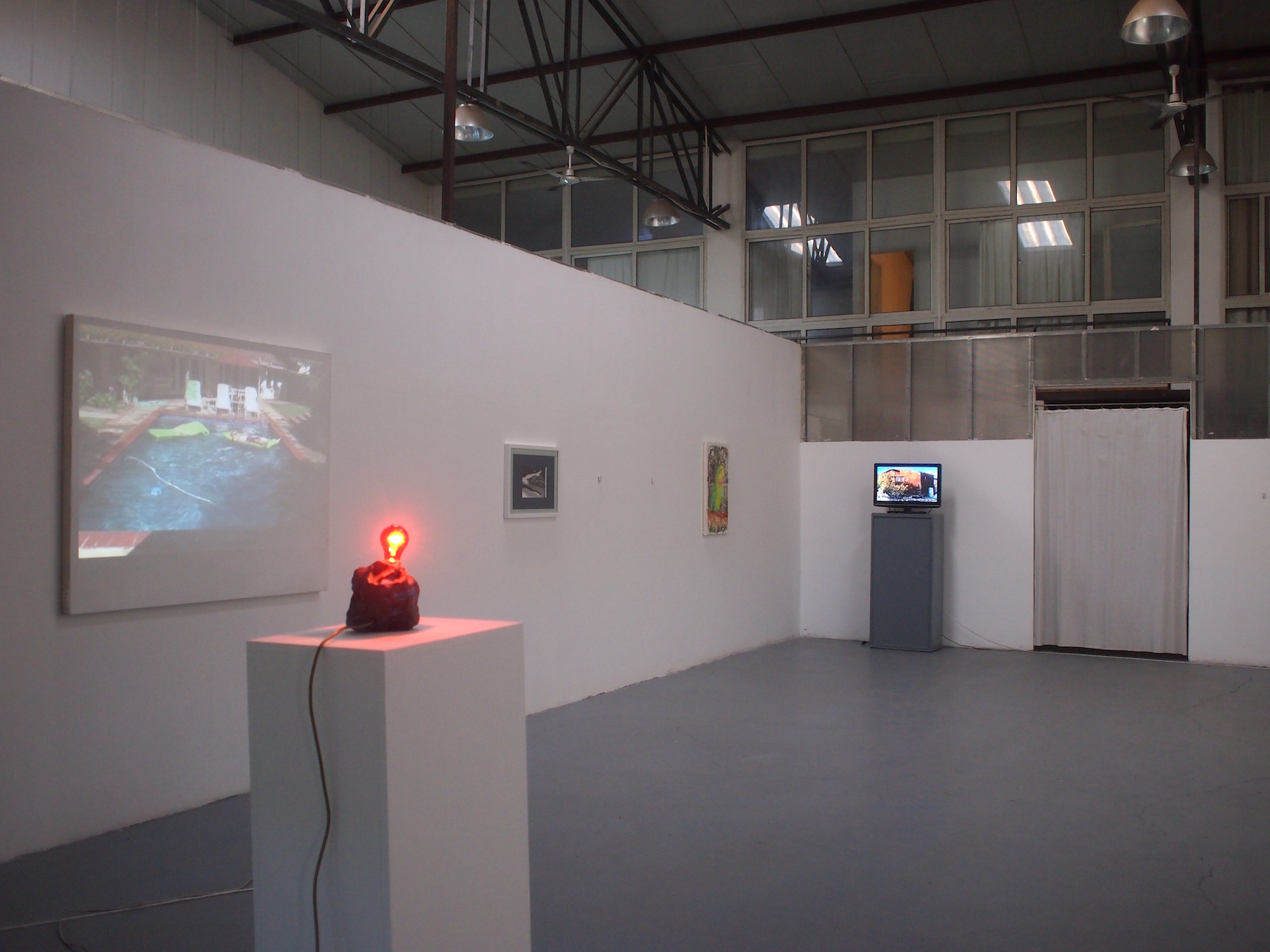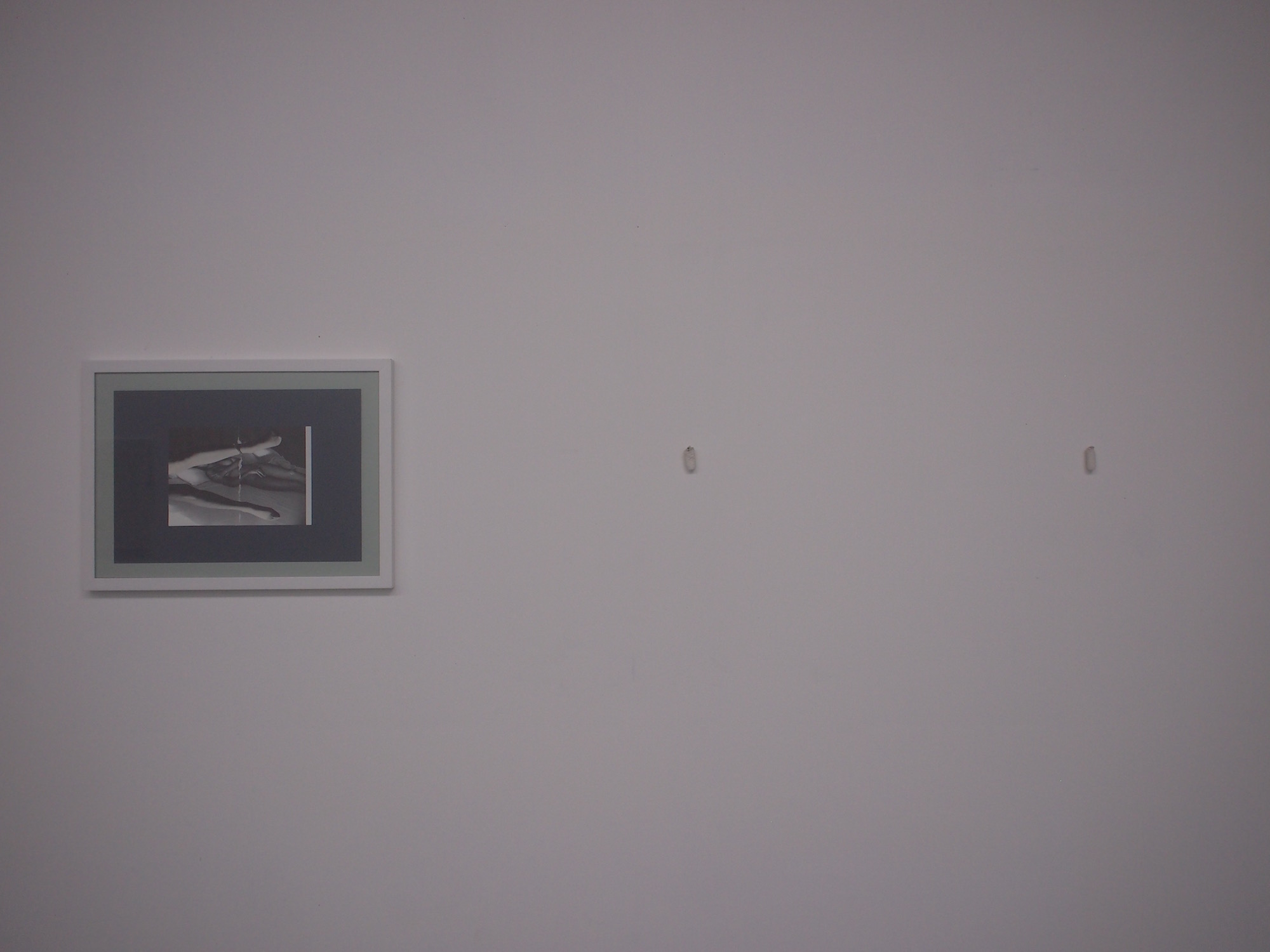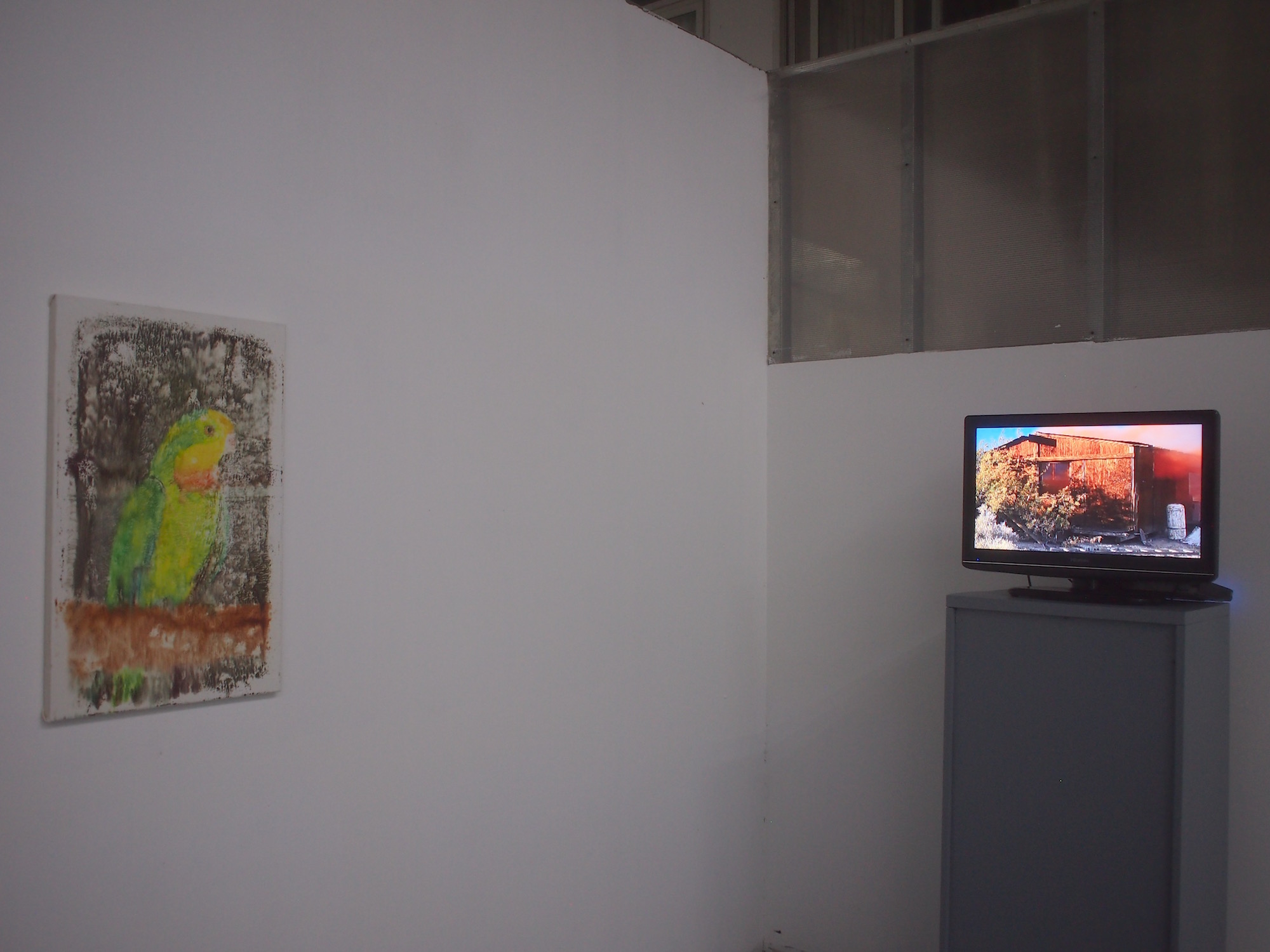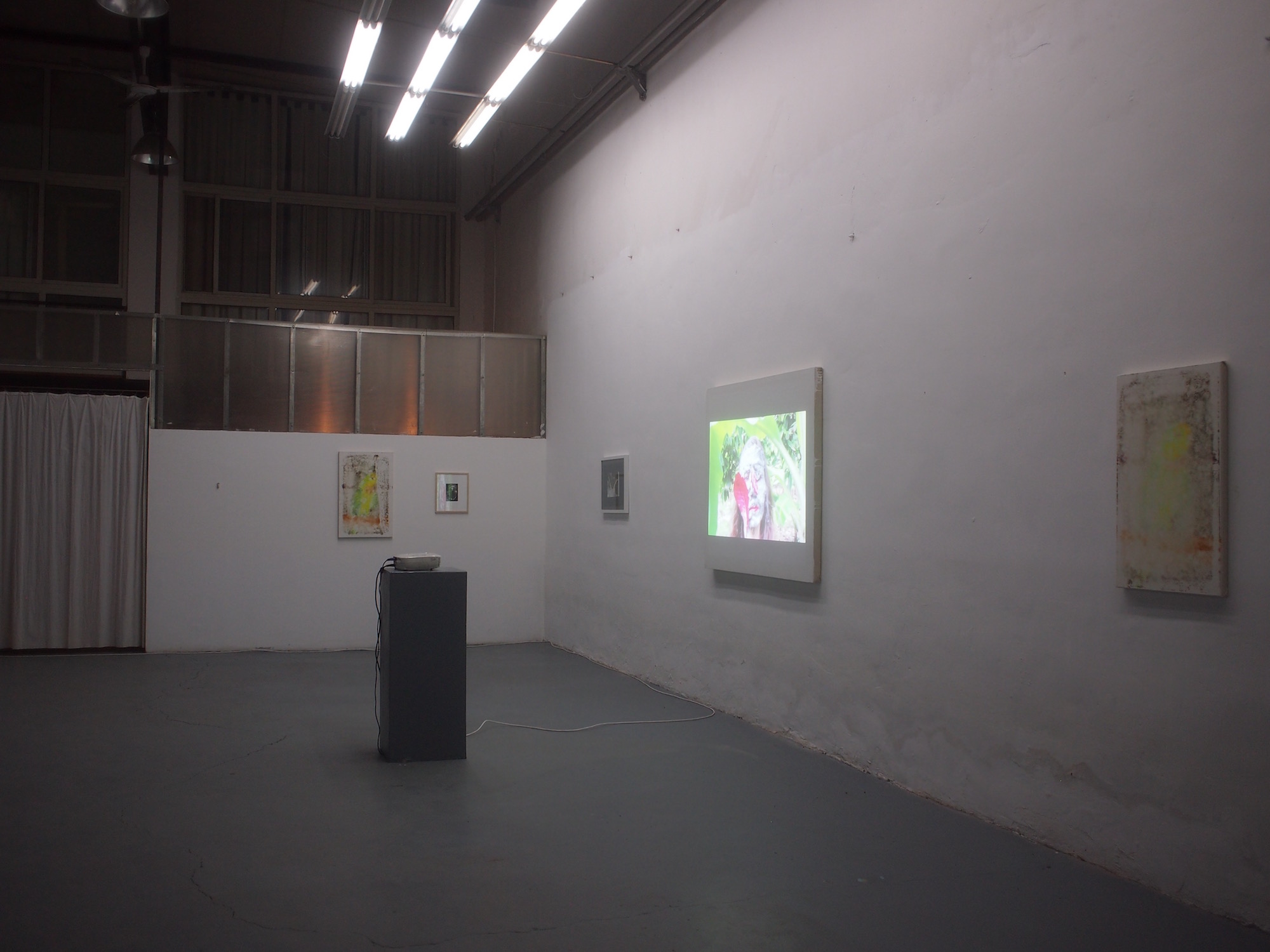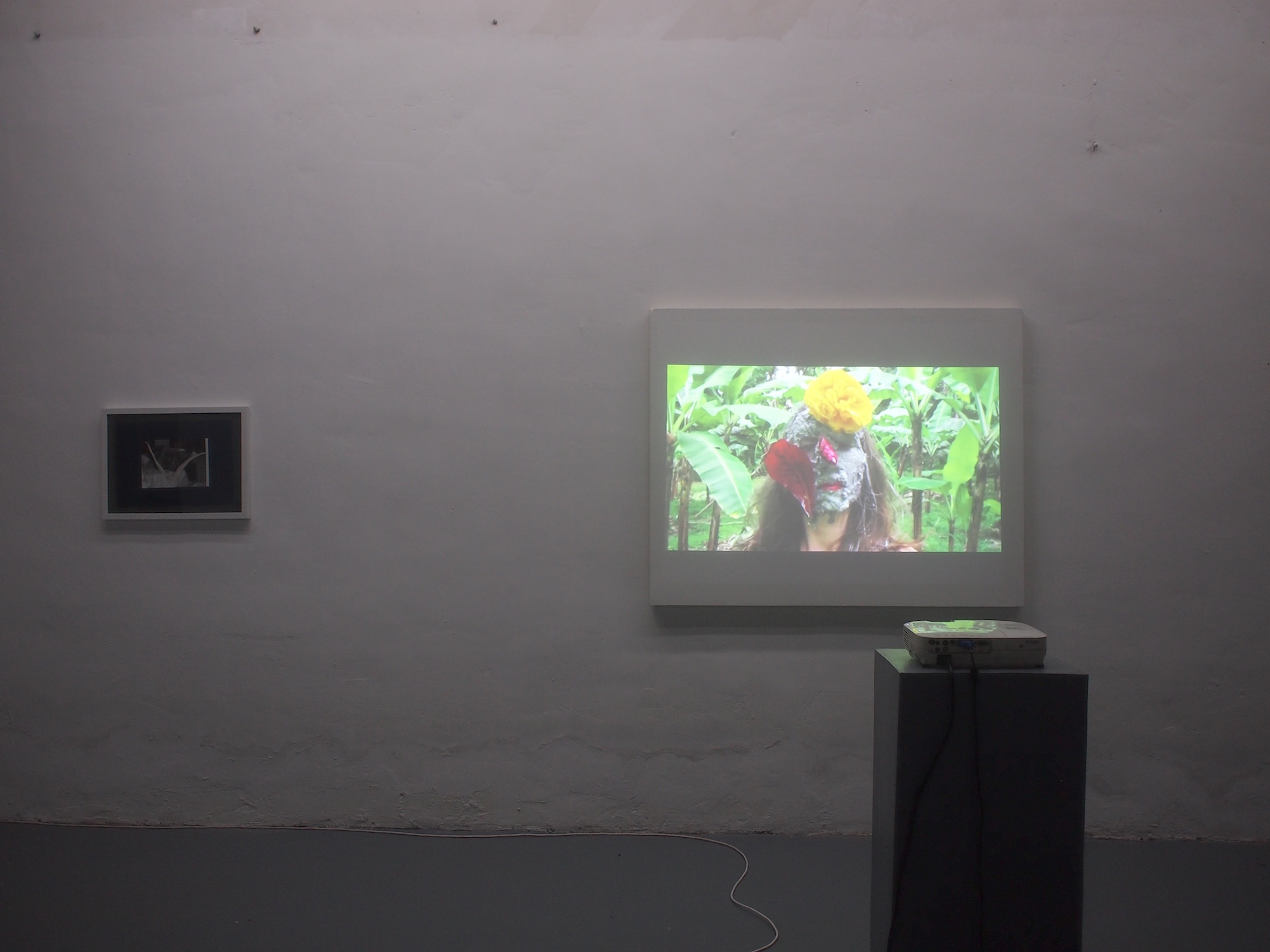BLACKBRIDGE OFFSPACE
黑桥OFF空间
以前PREVIOUS
策展:James Krone
IMPROPER NOUNS / 工作之间的名词
参 展艺术 家:Sonja Gerdes // Justin Hansch and Jason Starr // John Knuth // James Krone // Alexi Kukuljevic // Lindsay Lawson // Katrin Plavčak
IMPROPER NOUNS
In a letter to his friend Georges Izambard from 1871, the sixteen year old Arthur Rimbaud wrote, “Tant pis pour le bois que se trouve violon.” The literal translation of the phrase from French into English is, “Too bad for the piece of wood that finds itself a violin.” I’ve only just discovered this after sending the sentence through an online translation program. Following up, I see this translation repeated throughout various online course materials for a handful of liberal arts universities that I’ve never heard of. When I first encountered the quote years ago it was in English and had been translated as, “So what if a violin discovers it’s a violin?” I most recently saw this incarnation as an opening epitaph in a Dennis Cooper novel. I would tend to side with Dennis Cooper’s interpretation of Rimbaud’s intentions rather than with a hokey professor who blogs for his class on a tumblr page. But now the validity of this quote, the one I’ve regarded for years as native and true, the time I’ve spent considering it, is threatened by literary comprehension splash pages and the barf well of Bing translator. I had wished to use the quote and the axis of its introductory usage of s o what as a reflexive hinge from the speculative so what (happens then) to the indifferent so what (who cares). Whether it is a celebratory, horrific or indifferent realization, what if something ceases to identify with that which had been it’s presumed and given order? So what ( happens then) if a piece of wood discovers it’s a violin opens a field of existential questions as to what is possible or comprehensible in relation to identity. What can one do if overcome by the influence of an external desire or an alien identity? Are we anything other than a black box theatre for the transmutations of unknown influences, coming from within and without? If so then how can intention ever be claimed or the ego located within the framework of a singular expression? Is this discovery a freedom or a sentencing? So what (who cares) if a piece of wood discovers it’s a violin eliminates all difference rather pessimistically. It makes no difference anyhow. The wood is screwed. Violins and the will to play them exist merely as an aberration of chance in a universe expanding towards its own destruction. But Too bad for the piece of wood that finds itself a violin complicates the matter by potentially offering the half hearted pity of a rubbernecker. “OMG. Too bad!!!” :( My confidence in what I thought would be a quick probe of a reflexive thought has diminished and been replaced by doubt and now spins out into a seemingly meaningless number of directions. So what if a piece of wood doesn’t believe in transfiguration? So what if a piece of wood discovers it’s the handle for a toilet brush? So what if a toilet brush discovers it’s a piece of wood? If there is a consistent thread to the logic of all translations of this short phrase, it is the suggestion that a fracture or an entire revolution in self recognition may just occur out of the blue, regardless as to whether this fracture might be of any significance. So it goes. If one believes this to be a possibility, as I do, then they must look at themselves, at least partially, as a suspicious delegate. Once a person agrees to recognize the veracity of this social contract (a kind of open door policy between themselves and the other) it becomes very difficult to ascribe a fixed location to the goings on of one’s ego as a singular impenetrable entity. If Duchamp’s artist of the future was to merely point at things instead of producing them, I will suggest that this time has passed us. Things have been pointed at often and for extended durations with such intense projections of desire and analysis that they seem to have become imbued with something like a pathos of their own to point back with. Perhaps this resemblance of aura is only an effect that comes from the great emptying of human pathos on the behalf of things material. Perhaps more than elevating the object, our human sacrifices to them may have brought us down to the level of employment vessels. It is not outside the realm of possibility to consider them as mutant peers in the sense that these objects and ourselves have a horizontal correspondence and transfer back and forth between each other like rented organs. Although I am entirely untrained musically and cannot read musical notation, on occasion my dreams are scored with what seem to be entirely composed, symphonically performed pieces of incidental music that I’ve never heard elsewhere. They vaguely resemble the emotive hollowness of Hollywood melodramas from the 1980’s. They are mediocre, banal and emerge like heat through a vent.
工作之间的名词
一封1871年致他朋友乔治·伊赞巴尔的信上, 16岁的阿尔蒂 尔·兰波写到“Tant pis pour le bois que se trouve violon.” 这句法文的英文直译是“Too bad for the piece of wood that finds itself a violin” (木材自认是提琴,可惜啊)。我才刚刚发 现这些,通过一个在线翻译程序。然后我发现了这句英文译文 反复出现在一把我从未听说过的文科大学的各种在线教材里。 该格言我早在几年前初次遇到了。当时是英文的,而且被翻译 成“So what if a violin discovers it’s a violin?”(提琴发现 自己是提琴,又如何?) 。最近看到这个化身是当作一本丹 尼斯·庫伯小说的开头题词。相对某一名矫揉造作,在讲课之 前上汤博乐网给学生写博客的教授,我更愿意站在庫伯对兰波 本意的理解那边。虽然如此,现在这句格言的正确性,这句我 几年以来一直认为是原本和真实的,以及我思考它的时间,都 遭到了文学批判网页和必应翻译这个呕吐喷泉的威胁。 本来我想引用该格言,把它介绍的“又如何”当作自反关键, 而在投机的“又如何”(然后又有何事发生) 和漠不关心 的“又如何” (谁会在乎)之间穿梭。不管以上认定是欢乐 的,可怕的或无所谓的,如果某一种东西停止认同它被指定的 位子和秩序将会怎样? “木材发现自己是提琴(之后)如何?”这句话开辟了一场存 在意义问题的领域,包括身份认同那边都有什么可能性而我们 能知道多少等问题。如果一个人受到不可抗拒的外来欲望或异 己身份的影响,他该如何?我们只不过显现无名的,来自体内 外的各种势力在变形的黑盒子戏剧吗?即使这样,意向怎么能 被声称,自我怎么能在某一个表现的框架内被识别? 这些知识 到底是解放还是判刑? “木材发现自己是提琴,又如何(谁在乎)?” 这句话相当 消极的取消所有差异。无论如何都无所谓。木料操蛋了。提琴 和演奏它的意志只不过是往毁灭奔跑的宇宙里的偶然性失常。 但“木材自认是提琴,可惜啊”这个版本只添加了麻烦,因为 它提供一个类似看热闹群体半心半意怜悯的出路。 “我的天啊,太可惜啦!”:( 本来我以为这将是自反思想的迅速探查,但是现在我自信减少 了,被怀疑替代了,而延转四处,延转似乎失去意义了。 一块木材不相信变形,又如何? 一块木材发现自己是马桶刷把手,又如何? 一根马桶刷把手发现自己是一块木材,又如何? 如果这短短几句译文有始终如一主线的逻辑的话,它们提议自 身识别的裂隙或全盘革命随时可以发生,出乎意料,不管这个 裂隙本身有没有意义。就这样。如果你跟我相信这是可能的, 那么你要考虑自己,至少部分,是一名可疑代表。 一旦一个人确定了认同以上社会契约的真实性(是一种自己和 他人之间的改革开放)之后,把自我的行为归于固定位置,并 且把它们当作单独,不可分离的实体十分困难。 如果杜尚的未来艺术家不用制造而仅仅需要指向东西的话,我 想宣布我们已经赶上时代了。东西已经被指向很多次和很长时 间,并且收到了多么激烈的欲望和分析投射,它们的同情好像 已足以指回去。不过有可能这灵光的相通性仅仅是人类为了物 质而大掏空同情的副作用而已。 也许我们献给它们的人祭没有把物质升高而跟多的把我们下降 到执行载体的水准。把东西看做突变同类不在预料之外,因为 我们和物质是水平对应的而像租来的器官一样来回转移。虽然 我没受过音乐培训,也看不懂乐谱,但我不时梦见好像作曲编 曲完整的,被交响乐队演奏的,我从来未听过的配乐。配乐作 品恍如80年代好莱坞情节剧的情感空虚。平庸,陈腐,像热量 从通风孔浮现似的。 James Krone
黑桥OFF空间
以前PREVIOUS
策展:James Krone
IMPROPER NOUNS / 工作之间的名词
参 展艺术 家:Sonja Gerdes // Justin Hansch and Jason Starr // John Knuth // James Krone // Alexi Kukuljevic // Lindsay Lawson // Katrin Plavčak
IMPROPER NOUNS
In a letter to his friend Georges Izambard from 1871, the sixteen year old Arthur Rimbaud wrote, “Tant pis pour le bois que se trouve violon.” The literal translation of the phrase from French into English is, “Too bad for the piece of wood that finds itself a violin.” I’ve only just discovered this after sending the sentence through an online translation program. Following up, I see this translation repeated throughout various online course materials for a handful of liberal arts universities that I’ve never heard of. When I first encountered the quote years ago it was in English and had been translated as, “So what if a violin discovers it’s a violin?” I most recently saw this incarnation as an opening epitaph in a Dennis Cooper novel. I would tend to side with Dennis Cooper’s interpretation of Rimbaud’s intentions rather than with a hokey professor who blogs for his class on a tumblr page. But now the validity of this quote, the one I’ve regarded for years as native and true, the time I’ve spent considering it, is threatened by literary comprehension splash pages and the barf well of Bing translator. I had wished to use the quote and the axis of its introductory usage of s o what as a reflexive hinge from the speculative so what (happens then) to the indifferent so what (who cares). Whether it is a celebratory, horrific or indifferent realization, what if something ceases to identify with that which had been it’s presumed and given order? So what ( happens then) if a piece of wood discovers it’s a violin opens a field of existential questions as to what is possible or comprehensible in relation to identity. What can one do if overcome by the influence of an external desire or an alien identity? Are we anything other than a black box theatre for the transmutations of unknown influences, coming from within and without? If so then how can intention ever be claimed or the ego located within the framework of a singular expression? Is this discovery a freedom or a sentencing? So what (who cares) if a piece of wood discovers it’s a violin eliminates all difference rather pessimistically. It makes no difference anyhow. The wood is screwed. Violins and the will to play them exist merely as an aberration of chance in a universe expanding towards its own destruction. But Too bad for the piece of wood that finds itself a violin complicates the matter by potentially offering the half hearted pity of a rubbernecker. “OMG. Too bad!!!” :( My confidence in what I thought would be a quick probe of a reflexive thought has diminished and been replaced by doubt and now spins out into a seemingly meaningless number of directions. So what if a piece of wood doesn’t believe in transfiguration? So what if a piece of wood discovers it’s the handle for a toilet brush? So what if a toilet brush discovers it’s a piece of wood? If there is a consistent thread to the logic of all translations of this short phrase, it is the suggestion that a fracture or an entire revolution in self recognition may just occur out of the blue, regardless as to whether this fracture might be of any significance. So it goes. If one believes this to be a possibility, as I do, then they must look at themselves, at least partially, as a suspicious delegate. Once a person agrees to recognize the veracity of this social contract (a kind of open door policy between themselves and the other) it becomes very difficult to ascribe a fixed location to the goings on of one’s ego as a singular impenetrable entity. If Duchamp’s artist of the future was to merely point at things instead of producing them, I will suggest that this time has passed us. Things have been pointed at often and for extended durations with such intense projections of desire and analysis that they seem to have become imbued with something like a pathos of their own to point back with. Perhaps this resemblance of aura is only an effect that comes from the great emptying of human pathos on the behalf of things material. Perhaps more than elevating the object, our human sacrifices to them may have brought us down to the level of employment vessels. It is not outside the realm of possibility to consider them as mutant peers in the sense that these objects and ourselves have a horizontal correspondence and transfer back and forth between each other like rented organs. Although I am entirely untrained musically and cannot read musical notation, on occasion my dreams are scored with what seem to be entirely composed, symphonically performed pieces of incidental music that I’ve never heard elsewhere. They vaguely resemble the emotive hollowness of Hollywood melodramas from the 1980’s. They are mediocre, banal and emerge like heat through a vent.
工作之间的名词
一封1871年致他朋友乔治·伊赞巴尔的信上, 16岁的阿尔蒂 尔·兰波写到“Tant pis pour le bois que se trouve violon.” 这句法文的英文直译是“Too bad for the piece of wood that finds itself a violin” (木材自认是提琴,可惜啊)。我才刚刚发 现这些,通过一个在线翻译程序。然后我发现了这句英文译文 反复出现在一把我从未听说过的文科大学的各种在线教材里。 该格言我早在几年前初次遇到了。当时是英文的,而且被翻译 成“So what if a violin discovers it’s a violin?”(提琴发现 自己是提琴,又如何?) 。最近看到这个化身是当作一本丹 尼斯·庫伯小说的开头题词。相对某一名矫揉造作,在讲课之 前上汤博乐网给学生写博客的教授,我更愿意站在庫伯对兰波 本意的理解那边。虽然如此,现在这句格言的正确性,这句我 几年以来一直认为是原本和真实的,以及我思考它的时间,都 遭到了文学批判网页和必应翻译这个呕吐喷泉的威胁。 本来我想引用该格言,把它介绍的“又如何”当作自反关键, 而在投机的“又如何”(然后又有何事发生) 和漠不关心 的“又如何” (谁会在乎)之间穿梭。不管以上认定是欢乐 的,可怕的或无所谓的,如果某一种东西停止认同它被指定的 位子和秩序将会怎样? “木材发现自己是提琴(之后)如何?”这句话开辟了一场存 在意义问题的领域,包括身份认同那边都有什么可能性而我们 能知道多少等问题。如果一个人受到不可抗拒的外来欲望或异 己身份的影响,他该如何?我们只不过显现无名的,来自体内 外的各种势力在变形的黑盒子戏剧吗?即使这样,意向怎么能 被声称,自我怎么能在某一个表现的框架内被识别? 这些知识 到底是解放还是判刑? “木材发现自己是提琴,又如何(谁在乎)?” 这句话相当 消极的取消所有差异。无论如何都无所谓。木料操蛋了。提琴 和演奏它的意志只不过是往毁灭奔跑的宇宙里的偶然性失常。 但“木材自认是提琴,可惜啊”这个版本只添加了麻烦,因为 它提供一个类似看热闹群体半心半意怜悯的出路。 “我的天啊,太可惜啦!”:( 本来我以为这将是自反思想的迅速探查,但是现在我自信减少 了,被怀疑替代了,而延转四处,延转似乎失去意义了。 一块木材不相信变形,又如何? 一块木材发现自己是马桶刷把手,又如何? 一根马桶刷把手发现自己是一块木材,又如何? 如果这短短几句译文有始终如一主线的逻辑的话,它们提议自 身识别的裂隙或全盘革命随时可以发生,出乎意料,不管这个 裂隙本身有没有意义。就这样。如果你跟我相信这是可能的, 那么你要考虑自己,至少部分,是一名可疑代表。 一旦一个人确定了认同以上社会契约的真实性(是一种自己和 他人之间的改革开放)之后,把自我的行为归于固定位置,并 且把它们当作单独,不可分离的实体十分困难。 如果杜尚的未来艺术家不用制造而仅仅需要指向东西的话,我 想宣布我们已经赶上时代了。东西已经被指向很多次和很长时 间,并且收到了多么激烈的欲望和分析投射,它们的同情好像 已足以指回去。不过有可能这灵光的相通性仅仅是人类为了物 质而大掏空同情的副作用而已。 也许我们献给它们的人祭没有把物质升高而跟多的把我们下降 到执行载体的水准。把东西看做突变同类不在预料之外,因为 我们和物质是水平对应的而像租来的器官一样来回转移。虽然 我没受过音乐培训,也看不懂乐谱,但我不时梦见好像作曲编 曲完整的,被交响乐队演奏的,我从来未听过的配乐。配乐作 品恍如80年代好莱坞情节剧的情感空虚。平庸,陈腐,像热量 从通风孔浮现似的。 James Krone
